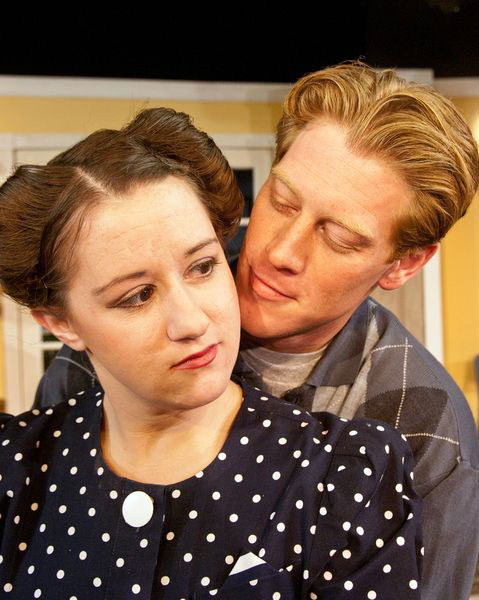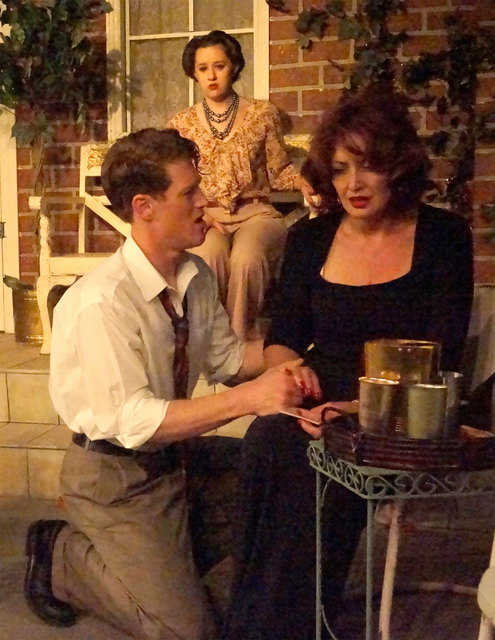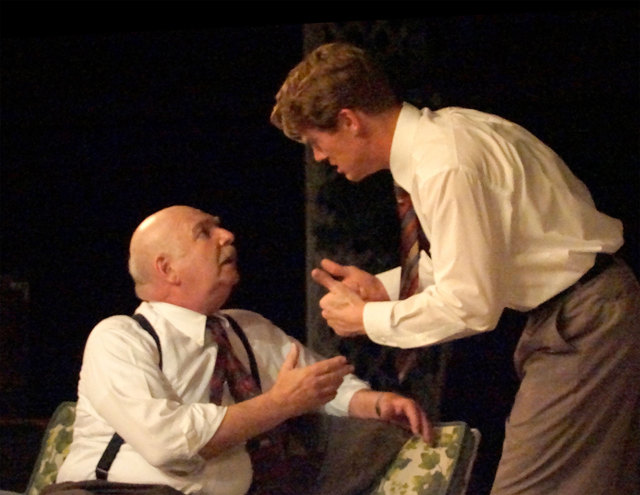“Everything was destroyed, see?” says Chris Keller, the protagonist of Arthur Miller’s All My Sons, as he recalls to his fiancee, Ann, his experiences in World War II. “But it seems to me, that one new thing was made. A kind of … responsibility. Man for man.”This responsibility of man for man, this “love,” as Keller calls it later “that man can have for a man,” lies at the heart of the play. Themes of sacrifice run deep throughout All My Sons. Nothing can be gotten for one without another’s loss. But Miller points out how those sacrifices must be appreciated and acknowledged in the attention he places on his characters’ losses and gains.As the story begins, we find Chris, a young man, returned from the war and working with this father, Joe Keller, at his airplane-manufacturing business. Joe’s business does well during the war, except for the fact the company knowingly sent out faulty parts, which caused the deaths of 21 pilots. While Joe is exonerated of all charges, his business partner is imprisoned, keeping with the theme of sacrifice in that his partner forfeited his freedom for manufacturing woes. Chris reveals his intentions to marry the neighbor girl from his childhood, Ann Deever, much to the dismay of his mother, a woman slowly withering from a poisonous mix of grief and denial. Adding to the drama, Ann’s father is the aforementioned business partner, still tucked away behind bars.This makes up the basic premise of the Adobe’s production of All My Sons, which is directed by Jim Cady and stars Philip J. Shortell and Lorri Oliver as Joe and Kate Keller. Utilizing the same director-actor team that helmed the stunning production of Death of a Salesman at the Vortex earlier this year, Miller’s work parallels many of the themes touched upon in Salesman. Both plays focus on a kind of American idyll and the attributes that make said idyll attainable—money, comfort and respect. Joe Keller and Willy Loman—Salesman’s iconic titular character—both played by Mr. Shortell, are willing to do anything to preserve those three attributes. But while Willy spends his whole life scraping and struggling to have that dream, Joe actually achieves it. He has plenty of money, a successful business, a beautiful home, an easy life and the respect of his neighbors. The very men who used to judge him, he plays cards with. And Miller outlines this certain ruthlessness in his character with a poignant tenacity.If Death of A Salesman is about the tragedy of pursuing, at the expense of all else, something so ephemeral and meaningless as the “American Dream,” then All My Sons asks, at what cost is it attained?Miller further examines the cost of comfort in All My Sons, particularly of the lives of soldiers lost in World War II. But the powerful message of the play is no less relevant today than it was 65 years ago. Miller asserts that with the passage of time, we have only become even more disconnected from the cost of building our lives. Rather, he points out how we turn a blind eye toward the things that encompass who we are as Americans—wealth, security, and most of all, convenience.It is human nature to consider the well-being of ourselves and our family above all else. But what Miller teaches in his play is that this is not a sustainable mode of living for society to progress. What Miller imparts is that familial integrity must remain intact, but only for the betterment of the community. Otherwise, planes fall out of the sky. All good intentions and blissful ignorance can’t change the consequences of Keller’s actions, except to say that no one meant to be a murderer. “When you drive that car … ” says Chris, wise beyond his years, “you’ve got be be a little better for it. Otherwise what you have is really loot, and there’s blood on it.” To Miller, the point is simple. We are all one another’s fathers and sons.
Adobe Theater Presents Arthur Miller’s All My SonsRuns through March 17Fridays and Saturdays at 8 p.m.Sundays at 2 p.m.Adobe Theater9813 4th St. NW505-898-9222General tickets are $15, seniors and students $13adobetheater.org












